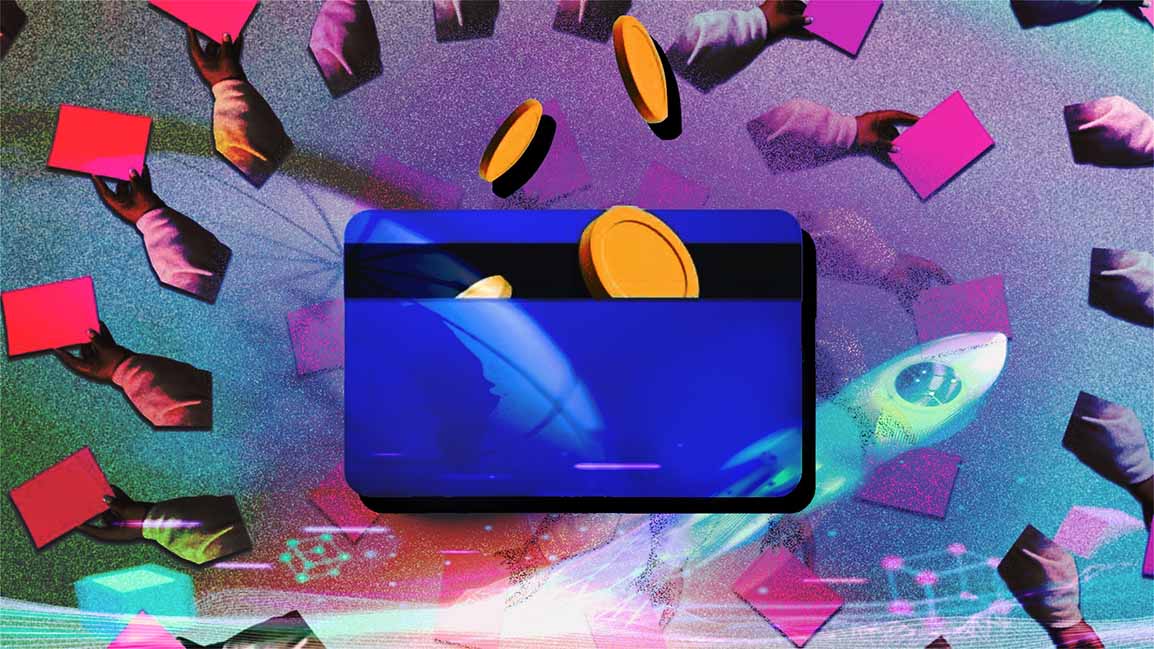- | 9:00 am
Millions in the Middle East are unbanked. Can fintech platforms change that?
Interest-free loans allow small vendors to procure capital, and flexible payment enables them to order goods in bulk from ecommerce platforms.

Living on the outskirts of Alexandria, Egyptian businessman Bassam once explored online shopping to buy groceries during the lockdown. And ever since, he has been making the most of the Middle East’s ecommerce boom.
The digital marketplace acted as a gateway for Bassam to access online transactions and, subsequently, a cluster of e-payment apps.
But while they all offer various services, someone like Bassam, who was used to cash transactions for most of his life, needs a platform that uncomplicates payments.
Fintech platforms that provide quick loans or options to pay in installments for big purchases have opened doors for financial inclusion in the Middle East. Consumers deprived of access to easy credit for decades are now tapping into buy now, pay later (BNPL) or Sharia-compliant microfinance, among others tailored for their specific needs.
Not only do these apps cater to the tastes of regional consumers, but they are also creating a higher appetite for online purchases by providing convenient payment structures.
Commenting on the role of easy credit in changing purchase patterns, the payment app Shahry’s founder Sherif El Rakabawy says that people spend more on ecommerce portals because “they can afford to buy more for less upfront. They can buy pricier and more items with typical down-payments from zero to 25% and 0% Annual Percentage Rate (APR).”
By influencing change in consumer behavior, payment apps such as Tabby, Lucky, and Spotii create opportunities for regional retailers. Interest-free loans allow smaller vendors like Bassam to procure capital, and flexible payment enables them to order goods in bulk from ecommerce platforms. At the same time, a smartphone for his daughter and appliances for his family are within reach with interest-free installments.
TUNING INTO THE PULSE OF THE MARKET
Beyond the tech hubs like Dubai, Abu Dhabi, Riyadh, and Manama, the region is home to 85 million of the world’s two billion unbanked adults. The dynamics of the fintech market change here, as simplicity and relevance to the everyday needs of a cash-dependent society drive innovation.
Focusing on addressing the requirements of users in Egypt, consumer credit startup Lucky’s co-founder Ayman Essawy says, “We offer Egyptians, particularly those who did not have access to credit previously, mobile banking or cashless payment, and the ability to find and buy the products they want and need while simultaneously building their credit history.”
“We’ve tailored our offerings, design, and customer service to these specific customers,” Essawy adds.
Egypt’s top fintech platform Lucky offers discounts and cashback for its eight million active users, thanks to partnerships with more than 30,000 stores. It has also launched the Lucky One Card, in collaboration with Mashreq Bank, which provides additional services, including mobile bill payments, withdrawals, and deposits.
Speaking of partnerships with banks to amplify services to a broader consumer base, AlRakabawy adds, “Banks provide access to their customer base and capital for BNPL companies to lend their customers. The latter is not quite easy in heavily regulated banking industries.”
SIMPLIFYING PAYMENT STRUCTURES
Although solutions such as Sharia-compliant microfinance cater to the Middle East’s cultural sensibilities and offer small interest-free loans without collateral, simpler flexible repayment schemes are gaining popularity. More than 50% of consumers in the Middle East and Africa are expected to use BNPL, which allows them to pay in four interest-free installments.
To increase the ease of using BNPL, Dubai-based Tabby also offers payment tracking and regular alerts for scheduled payments. Its counterpart Spotii provides additional benefits, such as cashback with flexible prices, thanks to its partnerships with brands in the lifestyle and healthcare sectors.
“The freedom to pay through easy installments creates a balance between the desire for immediate purchasing and the necessity for long-term budgeting, and hence, the customer spends more,” says Sagheer Ahmad, business development manager at Spotii.
THE ROAD TO DIGITIZATION
With a thriving digital infrastructure, the region appears to have come a long way to becoming a digitized economy. But while 82% of UAE merchants and 71% of Saudi merchants prioritize digital payments, 85% of their peers in a developing economy, such as Egypt, still rely on cash.
This indicates that there is still a long way to go, even though Ahmad asserts, “While cash is dominant compared to other regions, it has declined sharply from the 70.6% it held in 2019. The pandemic accelerated the move away from cash, and it is predicted to lose further ground.”
Painting an optimistic picture of the reality, Essawy adds, “Egypt’s transformation into a cashless economy is happening fast. From a regulatory perspective, significant changes have happened in the last three years. The Central Bank of Egypt has released an extensive framework to support the financial sector’s digitization, signifying an incredible amount of interest and commitment to this shift.”
Although a cashless economy is still a few years away, fintech startups and payment apps have transformed unbanked consumers’ lives. In the more evolved digital economies, these services provide a two-way advantage for buyers and retailers by increasing purchasing power and, subsequently, scaling up sales. With the proper policy framework, microfinance, consumer credit, and BNPL can change the region’s economic landscape faster than anticipated.
Most Innovative Companies comes to the Middle East this October! Click here to know more.

































